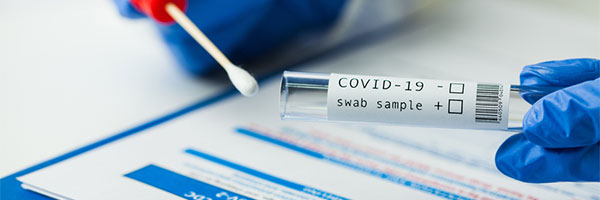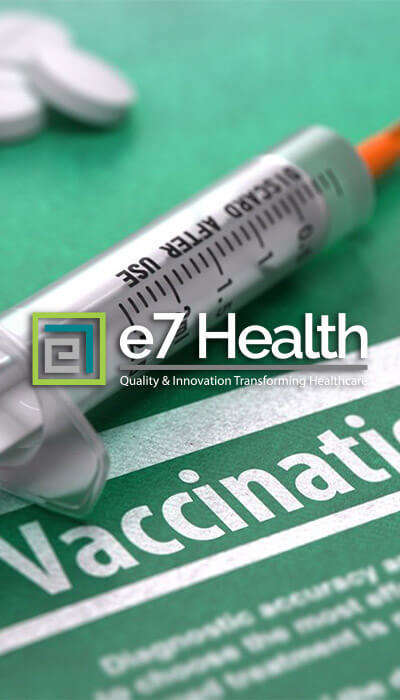Meningitis (Meningococcal Meningitis)
e7 Health is a preventative health and wellness company. Our clinic is supervised by Board Certified doctors. We provide comprehensive preventative health and wellness services. We offer same day or next day appointments and allow you to book your appointments online!
Our immunization services include all vaccines available in the US (excluding the COVID-19 vaccine) for work, school, travel, immigration, and general health. If you need vaccines that come in a series, we will schedule all follow up doses in advance. Same or next day appointments are available for vaccinations and laboratory services with minimal to no waiting. e7 Health will provide you an official copy of your vaccine record from the state immunization database.
We offer student discounts and charge no administrative fees or office visit fees!
WHAT IS MENINGITIS?
Meningococcal meningitis is a bacterial infection of the meninges and blood. The meninges are membranes that cover the brain and spinal cord. It is caused by different types of bacteria called Neisseria meningtidis. It is spread through airborne droplets or contact of objects contaminated by an infected person’s secretions. Close contact of a carrier increases the risk.
Adolescents and young adults are at an increased risk of contracting meningitis due to certain lifestyle factors and behaviors.
- People is close quarters such as schools
- Living in close quarters such as dormitories
- Sharing drinking glasses, eating utensils or water bottles
- Kissing
- Smoking
Since the risk is higher in young adults and adolescents, meningitis vaccine is required in many states (including Nevada) for seventh-graders and freshmen in college. The initial vaccine for adolescents is recommended at 11 years old. Because the vaccine effectiveness wains over time, a booster vaccine is recommended at 16 years old.
SYMPTOMS
Symptoms of meningitis are rapidly progressing and commonly begin with fever, chills, tiredness and rash and hours to days later severe headache, neck and back pain, neck stiffness, vomiting, change of consciousness and coma. In some meningitis infections, the serious complications of shock, coma and death can occur within hours even with proper medical treatment.
About 10-15% of people with bacterial meningococcal infection die even with antibiotic treatment. Meningitis is diagnosed by testing blood and spinal fluid samples taken. Unfortunately, because meningitis symptoms can sometimes be mistaken for other illnesses, it can lead to delayed diagnosis and treatment.
Serious complications of Meningitis include:
- Neurologic complications
- Brain Damage
- Amputations
- Shock
- Deafness
- Death in more than 70% of untreated infected persons
WHO SHOULD HAVE THE MENINGITIS VACCINE?
- Adolescents beginning at age 11 or prior to 7th grade (required in many states such as Nevada)
- Students who will live in dormitories or freshmen students at Universities (also required in many states)
- Travelers entering Saudi Arabia for Hajj or Umra are required to have Meningococcal vaccine and for it to be documented on International Certificate of Vaccination Prophylaxis (within 3 years)
- Travelers entering Saudi Arabia for seasonal work must also provide proof of vaccination (within 3 years) on the International Certificate of Vaccination Prophylaxis
- Travelers visiting a country having an epidemic or endemic or epidemic prone at certain times of year (such as in the “Meningitis Belt” in sub-Saharan Africa)
- Persons with HIV
- Certain laboratory personnel
- Military recruits
- Children if there is a community outbreak
- Persons without a spleen or with a complement component deficiency
ABOUT THE VACCINE
The vaccine is administered into the deltoid muscle of the arm. It can be given into the muscle of the upper leg in infants.
The vaccine that is usually given is a Quadrivalent vaccine (MCV4 or MenACWY). It protects against serotypes A, C, W-135, and Y. This is also the vaccine that is recommended for travel to risk countries in Africa and to Saudi Arabia for the Hajj.
The number of doses that should be administered varies depending on the reason for vaccination, age, and health information.
Generally, travelers at risk should be revaccinated 3-5 years after the first dose if continued to be at risk.
Adolescents should be initially vaccinated routinely at age 11-12 with a booster at age 16. If the adolescent is vaccinated later between 13-15 the booster should be given 16-18 years up to age 21 years. If the first vaccine was given at 16 years or older a booster is not needed unless at a continued risk after 5 years.
College students who will live in dorm or residence halls should be given a dose if the last dose was given less than 16 years of age.
Laboratory workers who will work with Neisseria meningitides bacteria should be vaccinated every 5 years.
e7 Health also carries the Meningococcal B vaccine (MenB vaccine). This vaccine is recommended for the following:
- People at risk because of a serogroup B meningococcal outbreak
- Anyone whose spleen is damaged or has been removed
- Anyone with complement component deficiency
- Anyone taking a certain immunosupressant medications
- Microbiologists who routinely work with isolates of N. meningitidis
MenB vaccine is also given as an intramuscular injection into the deltoid muscle.
Download Vaccine Information Statements (VIS)
Recommended Adult Vaccines
e7 Health has ALL the recommended and/or required adult vaccines needed for your travel:


















